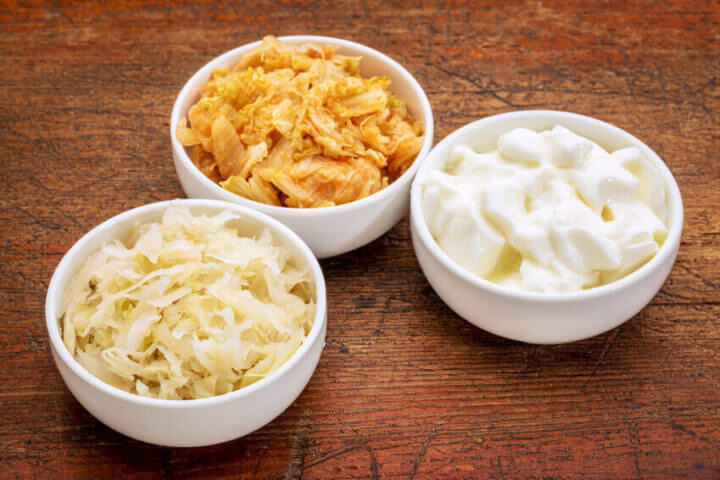Probiotics are rarely out of the media these days. Study after study seem to show that the right balance of bacteria in your digestive system can have measurable benefits for your physical health.
These beneficial bacteria can help you to maintain good health, and can help to treat a wide range of ailments including irritable bowel syndrome, oral health issues and even some skin conditions. Now, new research suggests they might help us to maintain good mental health too.
At the Leiden Institute of Brain and Cognition, located in the Netherlands, researchers have discovered that probiotics can aid in improving your mood by fighting depression and anxiety.
Why is this relevant to adrenal fatigue? Well, symptoms like mild depression and anxiety are common among those experiencing adrenal exhaustion. Long periods of stress can leave you feeling overwhelmed, saddened and unable to cope. This research suggests that a healthy diet can play a role in improving your mental state and returning yourself to a positive state of mind.
Probiotics and depression
Leiden University’s study showed that probiotics may in fact be very beneficial in the fight against depression. Half of a 40-strong group of volunteers took probiotic supplements for four weeks, while the other 20 participants took just a placebo every night. Those who took the probiotics began to show improvements in their moods, reporting less reaction to sad mood swings than their placebo counterparts. Far fewer of them experienced depressive thoughts after bouts of sadness.
In an interview with Time Magazine, Lorenza S. Colzato, an author of the study, said: “Even if preliminary, these results provide the first evidence that the intake of probiotics may help reduce negative thoughts associated with sad mood. As such, our findings shed an interesting new light on the potential of probiotics to serve as adjuvant or preventive therapy for depression.”
Foods to support a healthy digestive system
You can take probiotic supplements to improve your gut health, but there are some excellent food-based options too. Most people know that probiotic yogurts contain lots of “friendly” bacteria, but there are many other food stuffs that are brimming with probiotics too.
Here are a few mood-enhancing, gut-friendly foods you should add to your diet:
1. Fermented Foods: Sauerkraut, Tempeh, Kimchi, Kombucha
Fermented plant-based foods are full of probiotics that can improve the health of your intestinal cells and immune function. They are also known to decrease allergies, reduce the risk of colon cancer and treat diarrhea. Sauerkraut & co. will evict unfriendly bacteria from your gut, improve absorption of minerals and, as a result, improve your overall health.
2. Jerusalem Artichokes, Leeks, Onions, Asparagus, and Bananas
Jerusalem artichokes are odd-looking little things that taste great in soups, but they are also high in an insoluble fiber inulin. When it reaches your colon, inulin ferments into a broth of healthy micro flora. Other foods like onions, leeks, asparagus, bananas are equally good sources of inulin. For those with sensitive digestive tracts, these can be a more easily digestible alternative to Jerusalem artichokes.
3. Blueberries
Long known to be a super-nutritious food, blueberries contain antioxidants in spades. They’re also packed with vitamin K compounds and fiber. They can modify the micro biota, reduce inflammation, and strengthen your immune system.
4. Legumes (Beans)
Calorie for calorie, beans represent some of the best nutritional value money can buy T.hey’e also brimming with fiber, folate, B vitamins and protein. They help to release short-chain fatty acids that make your intestinal cells stronger, and assist with absorption of micronutrients. They can also act as food for friendly gut bacteria to grow and multiply.
5. Broccoli, Cauliflower, Cabbage and Kale
These cruciferous vegetables contain lots of metabolites named glucosinolates. These are broken down by microbes, release substances that lower inflammation, and can help reduce the risk of breast, bladder, colon, liver, lung and stomach cancer. Research suggests that eating your daily dose of greens can reduce your risk of colorectal cancer by up to 18% in the long run!




Leave a Reply